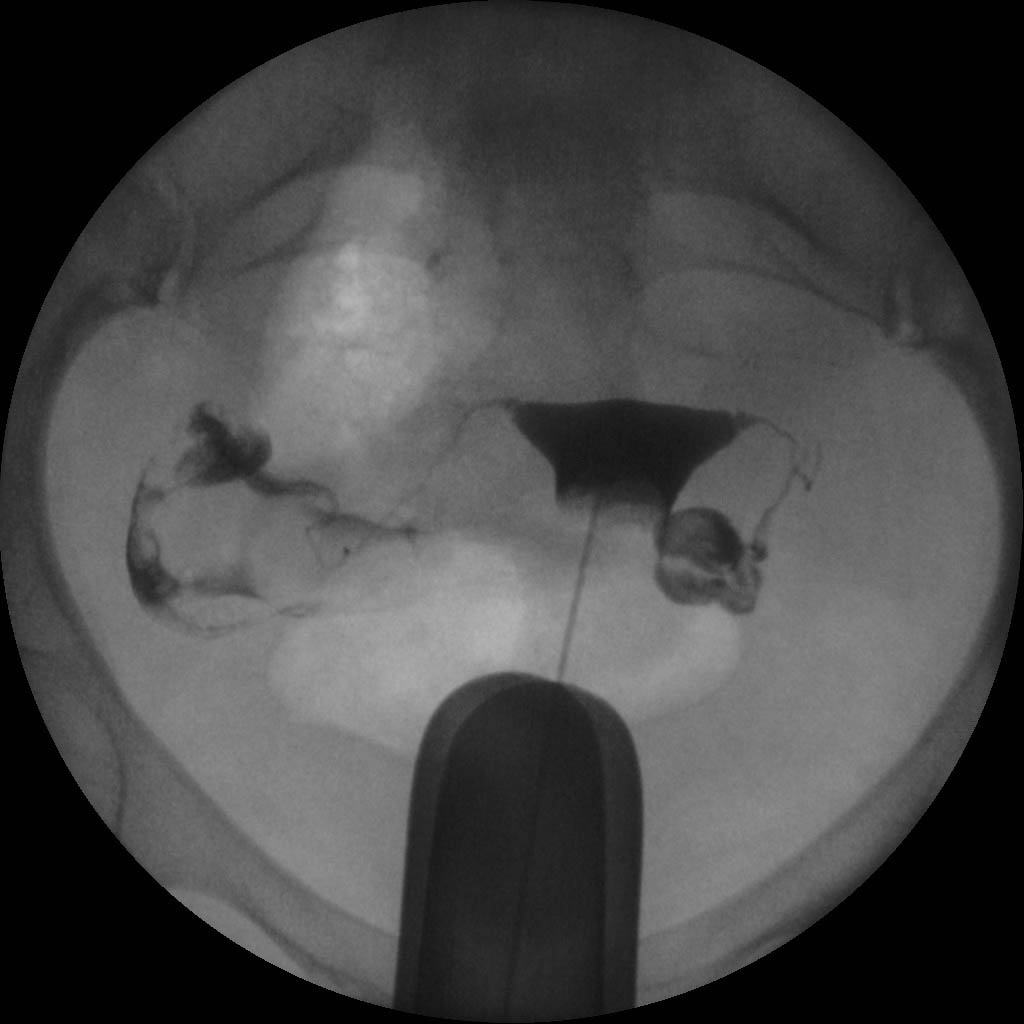#ThursdayThoughts
As promised, each Thursday, we will now offer you a piece of educational, science, or research related information. The purpose of our #ThursdayThoughts post is to share with you fact-based content that can enlighten and assist you on your fertility journey. Enjoy our post! Helping to Create New Beginnings….
What is an HSG and why is it important?
An HSG, or hysterosalpingogram, is a contrast based x-ray study performed by an infertility specialist, gynecologist, or radiologist to look at the uterine cavity and fallopian tubes. It’s similar to a visit to the gynecologist’s office where a speculum is used to visualize the cervix, and then a balloon catheter is inserted past the cervix into the uterine cavity. Iodine based contrast is then instilled into the uterine cavity to visualize the cavity and fallopian tubes. The test can cause sudden cramping during the procedure, so doctors often recommend NSAIDS prior to the procedure if there are no contraindications for you to reduce the cramping. The HSG gives your doctor important information regarding the placement of the tubes, fallopian tube architecture, and whether or not the tubes are blocked. Information regarding the shape of the inside of the uterine cavity is also obtained, demonstrating if fibroids, septums, or large polyps are an issue. This helps your doctor determine what may be contributing to your infertility.
What if you are allergic to iodine? If you have a true allergy to iodine specifically, you should not have this test done. In general, most individuals who are allergic to shellfish or seafood, can still safely have this procedure done with iodine based contrast. Individuals who have concerns about iodine based contrast, because of reduced renal function or other health conditions or medications, should speak with their doctor regarding their concerns. Other tests, such as a Hysterosalpingo Contrast Sonography (HyCoSy) may be indicated in these individuals where an HSG is not possible.
An HSG is part of the routine infertility workup, even in patients who think they have no risk factors for uterine or fallopian tube issues. Typically, an HSG study is good for approximately one year, and may need to be repeated after that time period has passed. After the procedure you may notice a clear, sticky, vaginal discharge from the contrast after the study, and a pantyliner or pad may be recommended for the rest of the day. You may also experience spotting or light bleeding from this procedure, and that is okay too, so long as it’s not heavy. This test is typically done around CD 5 – 10 of your menstrual cycle, right after your period has finished. Sometimes, doctors will place patients on birth control pills so that the study can be scheduled with more flexibility If your period lasts longer than expected and you are still experiencing bleeding when you are scheduled for your HSG, contact your doctor, as your HSG will most likely need to be rescheduled. Individuals can return to their daily activities and work after their HSG, although most doctors will want you to abstain from putting anything in the vagina for a few days, whether that be tampons or intercourse.
Risks of the procedure include mild bleeding, cramping, and infection. For most individuals, the risk of infection is very low, but if you have had a history of pelvic infection, such as chlamydia, gonorrhea, or PID, your doctor may prescribe antibiotics before and afterwards to reduce the risk of a subsequent infection. Although the test does use x-ray radiation, the doses experienced during a typical study are low and equivalent to about the same amount of background x-ray radiation a patient would experience over the course of a year. However, because of the radiation involved, if you believe you could be pregnant, you should not have this test done.
For more information about fertility testing and treatment, please contact the Fertility Institute of Hawaii at 808-545-2800, or visit our website https://www.ivfcenterhawaii.com/
